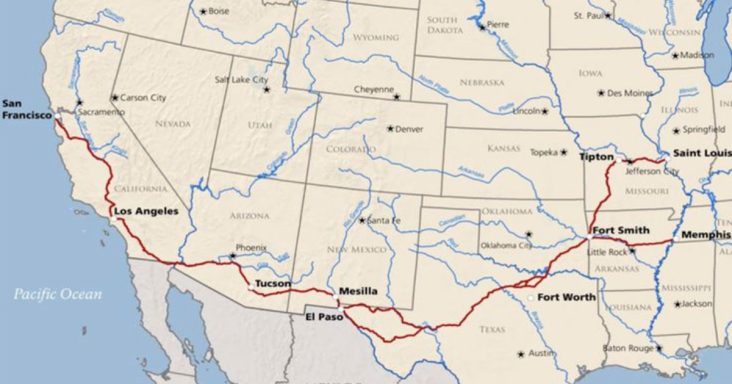Butterfield Trail moves a step closer to being a National Historic Trail
by December 21, 2022 4:09 pm 2,701 views

An effort to designate an historic trail partially located in Arkansas as a National Historic Trail is one step closer following approval in the U.S. Senate of legislation sponsored by U.S. John Boozman, R-Ark.
Sen. Boozman began working on the legislation (SB 3519) promoting the Butterfield Overland Trail during his time in the U.S. House of Representatives. With Senate passage, the bill now heads to the U.S. House for consideration. A representative from Boozman’s office said they are hopeful the House will soon take action on SB 3519.
The route, operated from 1858-1861 by the Butterfield Overland Mail Company and also known as the Butterfield Stage, was used to transport U.S. mail and passengers between St. Louis, Missouri; Memphis, Tennessee; and San Francisco, California, serving as the route of the longest stagecoach operation in history. It became known as the “ox-bow route” due to its curved path comprised of approximately 3,553 miles of trail routes in eight states: Missouri, Tennessee, Arkansas, Oklahoma, Texas, New Mexico, Arizona and California.
The routes from St. Louis and Memphis merged in Fort Smith, and the Butterfield Overland Express stagecoaches traveled through much of Arkansas. Stagecoaches made stops between Memphis and Fort Smith in St. Francis, Prairie, Lonoke, Faulkner, Conway, Pope, Yell, Logan and Franklin counties. The northwestern route that came out of Missouri included stops in Benton, Washington and Crawford counties.
Four segments of the roads the Butterfield Overland Express traveled over in Arkansas have been listed on the National Register of Historic Places. The Potts home, a well-preserved Arkansas way station for the Butterfield Express, is still standing in Pope County and is maintained as the Potts Inn Museum by the Pope County Historical Foundation.
“The Butterfield Trail helped facilitate America’s westward expansion and is a symbol of the pioneering spirit we still seek to embody. Designating it as a National Historic Trail will help future generations identify it with our nation’s growth and development,” Boozman said. “I’m pleased we were able to work in a bipartisan way to build the support necessary to approve it in the Senate. I encourage the House to follow suit and will continue championing this proposal until we get it across the finish line.”
Boozman amended the original legislation to specifically preclude any potential effect on energy development, production or transmission as a result of the trail designation.
In 2018, after conducting a study to evaluate the significance, feasibility, suitability and desirability of designating the routes associated with the Butterfield Overland Trail as a National Historic Trail, the National Park Service (NPS) announced they meet the requirements.
